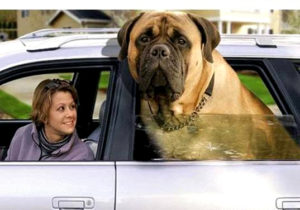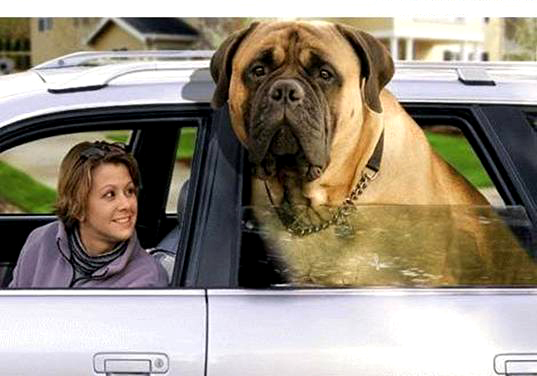
Photo by yourmdhomes0 on Pixabay
Introduction
Obesity is a growing concern, not just for humans, but for our furry friends as well. Dogs, known to be our loyal companions, are unfortunately not immune to this epidemic. In this comprehensive guide, we will explore the issue of dog obesity, its causes, and the breeds most prone to weight gain. We will also discuss the risks and consequences of obesity in dogs, and provide tips on how to prevent and manage this condition. So, let’s dive in and learn more about the fattest dog breeds in the world.
The Gentle Giants: English Mastiffs

English Mastiffs, despite their intimidating size, are actually low-energy dogs. These gentle giants have a tendency to be lazy, which often leads to excessive weight gain. Mastiff Savvy warns that owners of English Mastiffs must be vigilant in managing their diet and exercise to prevent obesity in this breed.
The Hungry Hounds: Beagles
Beagles, with their high energy levels, require plenty of exercise. However, they also have big appetites, which can lead to weight gain if not properly managed. Beagles Life advises owners to strike a balance between food intake and exercise to avoid obesity in these adorable hounds.
The Energetic Spaniels: Cocker Spaniels

Cocker Spaniels are known for their boundless energy and enthusiasm. Unfortunately, they also have a penchant for overeating. Vet Street highlights that Cocker Spaniels are prone to hypothyroidism, which can contribute to weight gain. It is essential for owners of Cocker Spaniels to monitor their diet and ensure regular exercise to keep them at a healthy weight.
The Playful Boxers and Bulldogs
Boxers, like Cocker Spaniels, are prone to hypothyroidism, which can slow down their metabolism and lead to weight gain. The Nest advises Boxer owners to be attentive to any changes in their dog’s activity level and consult a veterinarian if their Boxer starts to gain weight.
Bulldogs, often mistaken for being lazy due to their mellow nature, require regular moderate exercise to prevent excessive weight gain. The American Kennel Club emphasizes the importance of careful diets and exercise routines to keep Bulldogs fit and healthy.
The Low-Energy Hounds: Basset Hounds
Basset Hounds, despite being hunting dogs bred for endurance, are generally low-energy house pets. This breed has a hearty appetite and can quickly gain weight if not given enough activity. DogTime suggests that Basset Hound owners should provide regular exercise and monitor their food intake to prevent obesity.
The Little Legs: Dachshunds
Dachshunds, with their unique body shape and love for food, are prone to obesity. The American Kennel Club stresses that weight gain can be particularly dangerous for this breed, as it can lead to slipped or ruptured discs in their backs. Owners must carefully manage their Dachshund’s diet and exercise to prevent such health issues.
The Active Retrievers: Labrador Retrievers

Labrador Retrievers are known for their athleticism and love for outdoor activities. However, their food-driven nature can lead to weight gain if their diet is not closely monitored. Gunnar Örn Árnason suggests that owners of Labrador Retrievers should provide regular exercise and portion-controlled meals to maintain a healthy weight.
The Tiny Chihuahuas
Chihuahuas, being a small breed, are susceptible to weight gain even with a few extra pounds. Pet Central warns that owners must be cautious not to overestimate their Chihuahua’s food intake, as these little dogs are often carried around and pampered. Maintaining a healthy weight is crucial for their overall well-being.
The Consequences of Canine Obesity
Obesity in dogs can have severe consequences on their health and quality of life. Here are some of the risks associated with canine obesity:
- Joint Problems: Excess weight puts strain on a dog’s joints, leading to conditions like arthritis and hip dysplasia.
- Respiratory Issues: Overweight dogs may struggle with breathing difficulties, especially breeds with short snouts like Bulldogs.
- Heart Disease: Obesity can contribute to heart problems and increase the risk of cardiovascular diseases in dogs.
- Diabetes: Just like in humans, obesity is a major risk factor for diabetes in dogs.
- Reduced Lifespan: Studies have shown that obese dogs tend to have shorter lifespans compared to dogs at a healthy weight.
Preventing and Managing Dog Obesity
Preventing and managing obesity in dogs requires a proactive approach from pet owners. Here are some tips to help keep your furry friend fit and healthy:
- Portion Control: Measure your dog’s food and avoid overfeeding. Follow feeding guidelines based on their breed, size, and activity level.
- Regular Exercise: Engage your dog in daily exercise routines, tailored to their energy level and breed requirements. This can include walks, playtime, or even agility training.
- Healthy Treats: Opt for low-calorie treats or replace them with healthy alternatives like carrots or apple slices.
- Consult a Veterinarian: Regular check-ups with a veterinarian can help monitor your dog’s weight and identify any underlying health issues that may contribute to obesity.
- Create a Routine: Establish a consistent feeding and exercise schedule to maintain a healthy lifestyle for your dog.
Additional Information
In addition to the tips mentioned above, it’s important to note that each dog is unique, and their dietary and exercise needs may vary. It is essential to consult with a veterinarian to develop a personalized plan for your dog’s weight management.
Conclusion
Obesity is a significant health concern for dogs, and it’s our responsibility as pet owners to ensure their well-being. By understanding the breeds most prone to weight gain and implementing preventive measures, we can help our furry friends live long, healthy lives. So let’s take action and keep our dogs fit, happy, and free from the burdens of obesity.
